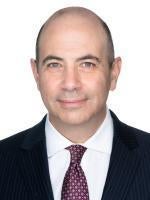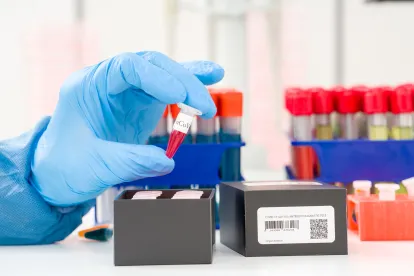In the initial panic and fear of the 2020 Coronavirus pandemic, barriers to Medicare spending were greatly lowered in order to increase access to COVID-19 testing. This effort to expedite test results, remove hurdles based around expense and insurance reimbursement, and increase the pool of providers available undoubtedly saved lives. It also made healthcare both more accessible and more equitable in the early days of the global pandemic.
However, new reports from the US Department of Health and Human Services Office of the Inspector General have emerged that illustrate a possible rise in Medicare and Medicaid fraud due to these relaxed barriers for reimbursement. The study shows that Medicare expenses have stayed perhaps artificially high since the first push for increased COVID-19 testing. The billing patterns identified in the latest study raise concerns of COVID-19 testing fraud.
Breaking Down Patterns in COVID-19 Lab Fraud
The emergence of COVID-19 not only cost millions of people their lives, livelihoods, and sense of security, but it also created the perfect conditions for what would become "an unprecedented wave of fraud,” in the words of Michael Cohen, an operations officer with the HHS Inspector General. The general atmosphere of fear and uncertainty created opportunities for scam artists to take advantage of government policies designed to help during an ongoing and evolving health crisis.
A recent HHS OIG study, which followed Medicare expenditures through October 31, 2022, identified $2 billion dollars spent on COVID-19 testing alone. This is in comparison to $2 billion spent for all of 2021 on COVID-19 tests, and $1.5 billion spent in 2020. While the pandemic has undoubtedly continued to evolve, the Department of Health and Human Services questioned why 2022 has seen such a relatively high growth in testing reimbursements.
High Levels of Add-On Billing Raise Concern
The study, which was conducted to examine these high Medicaid costs, took a closer look at 378 outlier labs that claimed COVID-19 test reimbursements. These testing laboratories were identified because of their high levels of add-on billing when performing COVID-19 tests. Of the study's subjects, 276 labs billed for a higher volume of add-on tests, such as billing Medicaid for COVID-19 tests alongside individual respiratory tests (IRTs), respiratory pathogen panels (RPPs), allergy tests, and genetic testing. An additional 161 of these labs also reported higher costs than usual for these add-on panels of testing.
Medical insight into COVID-19 has evolved, and the ways in which symptoms present have shifted with new variants of the disease. However, significant add-on testing may lead to fraud concerns. COVID-19, with its relaxed reimbursement policies, has unfortunately become the perfect target for scam artists.
For instance, the aforementioned study found that one outlier lab regularly billed Medicaid for five expensive add-on respiratory tests alongside almost all of their COVID-19 test claims. These tests did not vary from patient to patient, raising red flags that they were not based on patient symptoms, but rather on receiving the highest possible reimbursement. The identified lab ran their average reimbursement payment up to nearly $666 per COVID-test, as opposed to the usual $89 (an amount that covers both COVID testing and some additional add-on respiratory testing).
Examples of Medicaid Fraud Involving COVID-19 Testing
The following are common ways that unethical medical providers and laboratories have attempted to take advantage of COVID-19 test reimbursements. If you have information about any of the following, or any other kinds of COVID-19 testing scams, you should take it to a qui tam attorney at once to see if you may qualify as a whistleblower. Doing so can protect your own interests as well as the public good.
- Prescribing medically unnecessary tests: In a so-called "custom profiles" scam identified by the OIG study, certain labs run a barrage of medically unnecessary tests by claiming that they have created a "custom profile" for a patient. In reality, the extensive testing is a generic slew, and not aligned to their actual needs.
- Sharing enrollee information: In the OIG study, at least 10 claims reported that multiple labs tested the same individual for the same conditions on the same day. This may point to a case of sharing enrollee information in order to forge claims for tests. While the patient may have been tested by one lab for COVID-19, the flu, and a series of allergy tests all in one day, it is unlikely that one sick person was sent to more than one lab in one day in order to receive the same panel of tests twice.
- Kickbacks: The offering of or accepting kickbacks in the medical field is considered fraud. In areas of COVID-19 testing, kickbacks can also help secure government contracts for less-qualified labs or less-accurate processes. For instance, the Colorado Springs Gazette reported that Curative, a testing clinic started by a 25-year-old college dropout, allegedly used political connections to secure its no-bid contract in Colorado's nursing homes. The FDA has since revoked its authorization for Curative tests after Colorado's nursing home death rate was the highest in the country.
- Deceptive marketing: Many COVID-19 testing companies promise expedited results. While some deliver accurate, on-time tests, others may rush COVID-19 testing, or take days or weeks to return results when time is of the essence. Deceptive marketing practices should not be rewarded with Medicaid reimbursements and continued government contracts.
Why COVID-19 Testing Fraud Matters
COVID-19 testing fraud affects more than just the person receiving the swab – although patients who are affected by lab fraud are put at increased risk of severe health conditions, complications, distress, and even death. For instance, Northshore Clinical, a Chicago-based lab that allegedly used political connections to secure speedy licensing in Nevada and entered into numerous agreements with schools, universities, and local governments, recently came under scrutiny for a dangerous combination of fraudulent billing practices as well as faulty results. A study of tests conducted on the University of Nevada Reno campus found that Northshore's results missed 96% of COVID-19 cases from the surge of December 2021.
Cutting corners on reporting can also result in missed or delayed test results from supposedly "expedited" testing, false positives or negatives that lead to missed work and important events, as well as endangering the general public as well as loved ones who are relying on accuracy.
Finally, investing money on bad testing providers is a waste of taxpayer funds. It reduces everyone's ability to get the accurate results they need and rewards bad actors who cut corners with the public's health.
What to Do if You Suspect COVID-19 Lab Fraud
If you suspect you may have been the victim of COVID-19 lab fraud, or if you have information about your employer's fraudulent practices, you may be able to report it for a reward. Don't hesitate to speak up. Work with a lawyer to blow the whistle on COVID-19 testing fraud.




 />i
/>i

